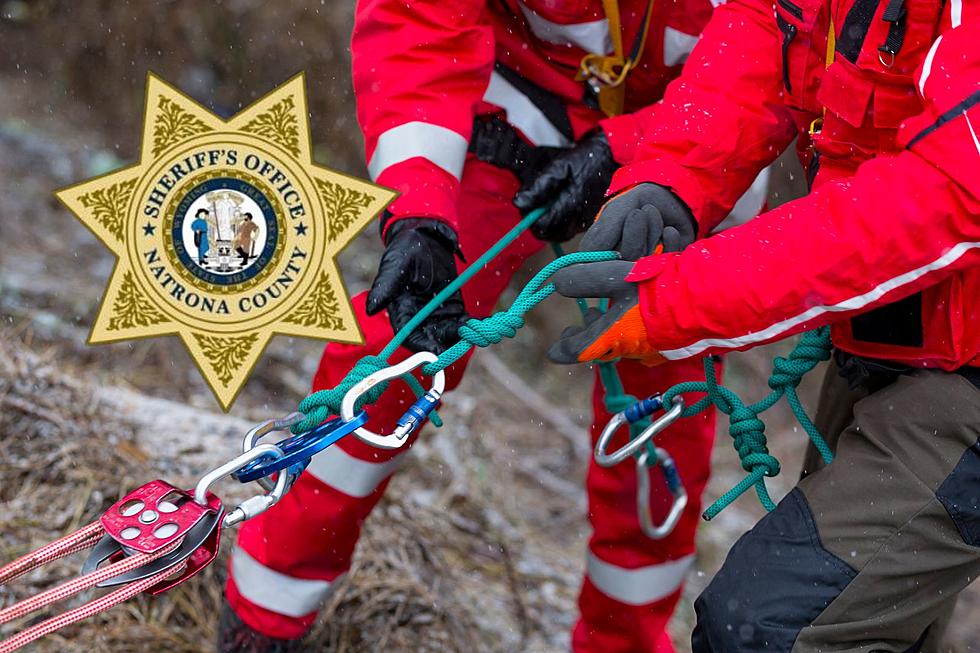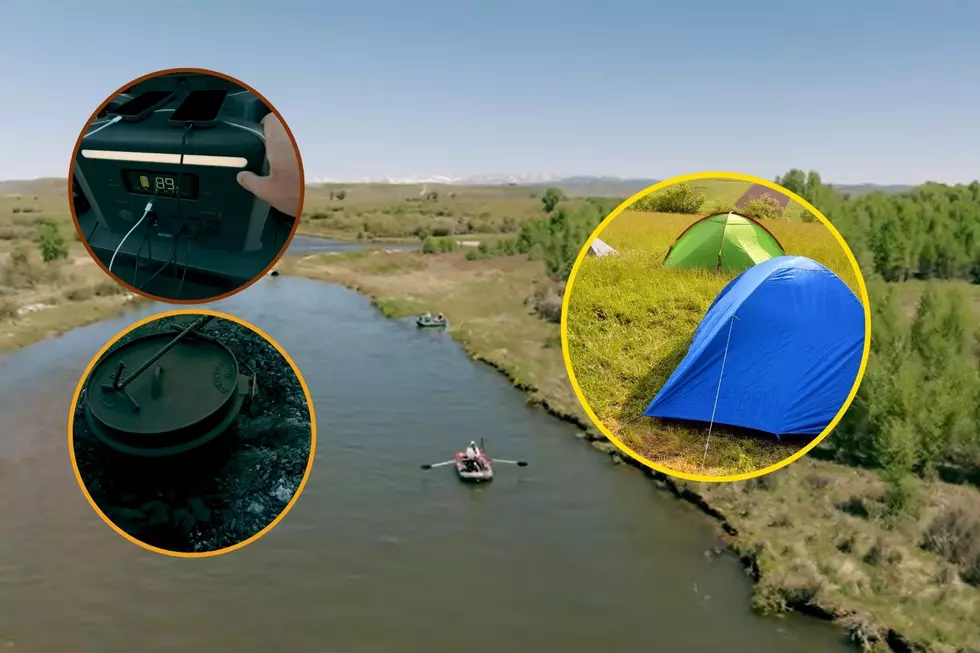
Images Are Forever; Casper School Learns About Sexting
You've heard "a diamond is forever."
A diamond-forever is a second on a cheap watch compared to a three-second nude selfie-forever posted on Snapchat.
"The images are never gone," Natrona County Sheriff's Investigator Dave Hulshizer told about 40 parents at Casper Classical Academy on Monday.
That selfie-forever is the kind of forever that can lead to embarrassment, ostracism, depression and suicide.
The kind of forever that, despite a supposed deletion on a cell phone, can return to haunt a person in future relationships and careers.
The kind of forever that if somebody has that selfie on their cell phone, they could be charged with possession of child pornography.
The kind of forever that worms its way into the Dark Net so that it is no longer just a nude selfie but a picture with metadata containing the person's age, location, appearance, likes and dislikes, and the potential fodder for child pornographers, child molesters and sex traffickers.
For example, let's say Mary has a crush on Doug, Hulshizer said.
Doug thinks that's great, and asks Mary, if she really likes him, to send him 10 nudes of herself on Snapchat and he'll be the only one who will see them. Of course, they photos will self-delete after a short while, so Mary thinks.
But Doug is a sleazebag, and shares them with a few friends, who share them with a few friends to Mary's embarrassment and humiliation.
What Mary doesn't know is even worse, Hulshizer said.
Mary thinks she's sending the photos to Doug by way of a cell tower. But in reality, she's sending them to Snapchat, which now owns her images. Snapchat files them on a server as well as sending them to Doug.
Then there's the Dark Net that require special software to go beyond common search engines.
Hackers and those who use the Dark Net for illicit purposes can access servers, download files, bundle Mary's photos with other photos, and then sell them to child pornographers, sex traffickers, and those who could use those photos to blackmail Mary, Hulshizer said.
The act of sending sexy pictures and sexual messages is known as sexting, he said.
The act of blackmailing another to perform sex acts or else risk being exposed with the original nude image is called sextortion, he added.
============================================
"Kids don't know this," Hulshizer said.
Parents and educators don't know much about it, either, and that's why the Sheriff's Office launched a program campaign about the blessings of new technologies and the curses that can cause a lifetime of grief, he said.
"About two, three years ago we began to see some patterns within the school district dealing with kids in high school, middle school," Hulshizer said. "From there we just began to talk within specifically the investigations and Sheriff (Gus) Holbrook about what we can do to try to curb this. The best thing we came up with is education."
The kids, parents and educators may not know the finer points of the Dark Net, hacking, metadata or hash values.
But they see the results of sexting and sextortion that can spiral down to bullying, depression and suicide.
Hulshizer showed the video of Amanda Todd (11/27/96 - 10/10/12) who posted an image that led to humiliation, depression and finally suicide.
The man who put her up to this was from the Netherlands and he did it to others, Hulshizer said.
Casper Classical Academy Principal Marie Puryear said Hulshizer, who is a parent of a student at the school, told her about cyber bullying, sexting and that is was important for the staff to know.
"Our teachers were, quite honestly, pretty flabbergasted with the information," Puryear said. "We generally consider ourselves savvy with technology and think that we're generally pretty in the know, and found out there was a lot we didn't know."
The school's parent teacher organization said it was important, so the school, with about 360 students, invited parents for Monday's presentation, Puryear said.
Middle school students are becoming acquainted with technology, and some have gotten in trouble with bullying and sending sexually oriented pictures, she said.
What shocked her were the variety of apps that could be downloaded for cell phones that can be used for communication -- Facebook is now for geezers, by the way -- including one for talking to strangers called OMEGLE, she said.
Some apps to hide files and other apps are disguised as calculators, Hulshizer said. So parents may want to ask why their children need more than one calculator, he added.
Missy Muldownney is a parent of five children: one in high school, three in middle school, and one in elementary school.
Muldowney works with young women in her Church of Jesus Christ of Latter-day Saints who don't think sending pictures is a bad thing because they're gone after a few seconds, she said.
She didn't believe it then, and she now knows why.
Muldowney and her husband practice a lot of caution with their technology. The computers in the house are in public areas and are not allowed in their children's bedrooms, and the children don't have smart phones, she said.
She knows parents who resist thinking that something could go wrong, she said. "I think most people think, 'oh, my kid's better than that,' 'my kid knows better.'"
But peer pressure is tough, and even more so with the new technology, she said.
Muldowney knows girls who send borderline photos, she said. "You worry for what other people are seeing in that girl, especially the data given tonight to know that anybody can find out where that girl is at any moment; that's terrifying to know that that girl I know, something could happen to her."
More From My Country 95.5









